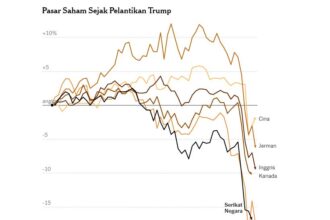Former President Donald Trump has been accused of obstructing a congressional investigation by destroying classified documents at his Mar-a-Lago resort. The documents in question relate to the former president’s handling of sensitive national security information.
According to investigators, Trump is alleged to have destroyed or concealed the documents to prevent their examination by Congress. This comes amid ongoing scrutiny of Trump’s administration’s handling of classified information, as well as his adherence to the Presidential Records Act, which requires the preservation of presidential records for historical purposes and public access.
Several members of Congress have expressed concern over the potential destruction of classified materials, as this would not only obstruct the investigation but also pose a threat to national security. They have called for a thorough inquiry into the matter, demanding accountability for any potential violations of the law.
In response to the allegations, Trump’s legal team has denied any wrongdoing, asserting that the former president has complied with all legal requirements related to the preservation of classified information. They have also dismissed the investigation as a politically motivated “witch hunt” aimed at undermining Trump’s legacy.
As the investigation continues, it remains to be seen whether any concrete evidence will emerge that supports the allegations against the former president. Meanwhile, the controversy surrounding Trump’s handling of classified information only adds to the ongoing debate about his presidency and its impact on national security.
The congressional investigation is expected to dig deeper into the allegations of obstruction by Trump and the potential destruction of classified materials at Mar-a-Lago. Lawmakers have emphasized the importance of transparency and adherence to the law, stressing that no one is above the law, including former presidents.
In the coming weeks, the investigation may involve interviews with key figures from Trump’s administration, as well as the examination of any available records that might provide evidence of mishandling classified information. The investigators are likely to work closely with national security experts to determine the potential impact of the alleged actions on the country’s security.
Critics of the former president argue that any proven destruction of classified materials or obstruction of the investigation would further damage Trump’s reputation and potentially have legal consequences. However, Trump’s supporters maintain that the allegations are baseless and politically motivated, aimed at discrediting the former president and his policies.
Regardless of the outcome, the investigation into Trump’s alleged destruction of classified documents at Mar-a-Lago adds to the ongoing discourse surrounding the former president’s time in office. It serves as a reminder of the importance of transparency, accountability, and adherence to the law, especially when it comes to matters of national security.
As the investigation unfolds, the public and lawmakers alike will be closely watching for any new developments or evidence that could shed light on the allegations against Trump. Ultimately, the findings of this investigation could have lasting implications for both the former president’s legacy and the future handling of classified information by US leaders.
As the investigation continues, it could also bring to light additional questions about the Trump administration’s overall approach to classified information and national security. Previous incidents, such as Trump’s alleged sharing of classified intelligence with Russian officials in the Oval Office in 2017, may also resurface, fueling further debates on the former president’s approach to sensitive matters.
Depending on the outcome of the investigation, Congress may consider implementing new measures or strengthening existing ones to ensure the proper handling of classified information by future administrations. This could involve more stringent oversight, better record-keeping practices, or the establishment of new protocols for managing sensitive materials at non-governmental properties, such as Mar-a-Lago.
The investigation may also prompt discussions about the balance between transparency and national security. While it is crucial to maintain public trust through transparency, there is a need to protect sensitive information that could compromise the nation’s security if mishandled or leaked. Striking this balance will be an ongoing challenge for lawmakers and government officials.
In the broader context, the Mar-a-Lago investigation highlights the importance of maintaining the rule of law and the principle of accountability for all individuals, regardless of their political standing or past positions. It serves as a reminder that the United States’ democratic institutions must continue to uphold these values in order to maintain the public’s trust and confidence in the government.
Ultimately, the outcome of the investigation will contribute to a broader understanding of the Trump administration’s handling of classified information and national security matters. It may also lead to significant reforms that could shape the way future administrations manage sensitive materials and uphold the principles of transparency and accountability.








![[SALAH] Donald Trump bantu padamkan kebakaran di Los Angeles 13 trump](https://zonautara.com/wp-content/uploads/2025/02/donald-trump-330x220.png)
